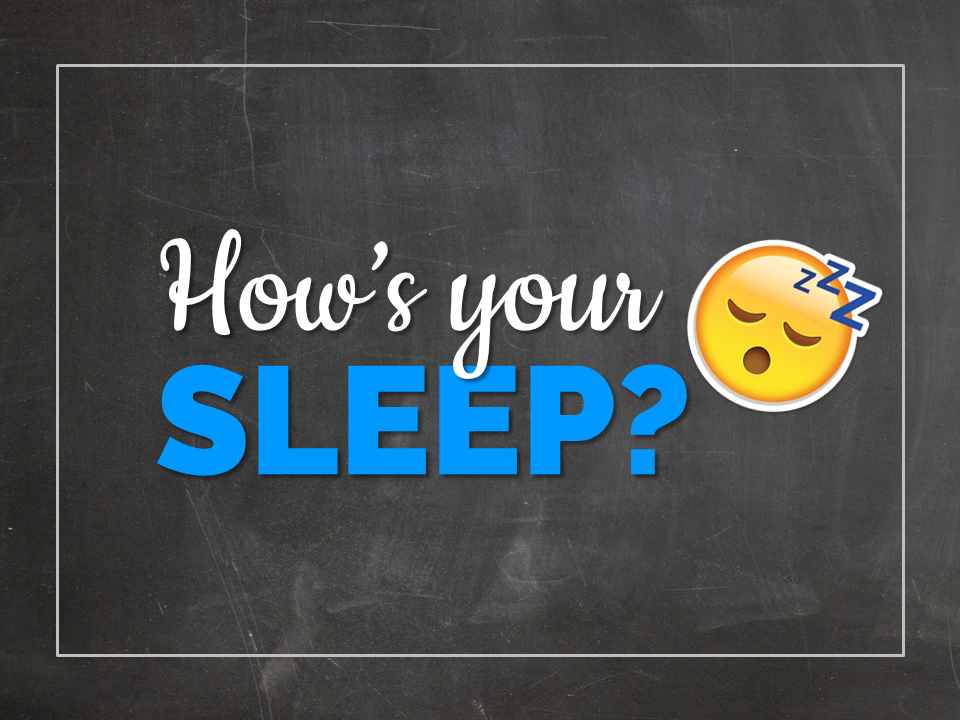I heard a statistic this week that blew me away.
If we assume the average person lives to be 78 years old, 26 of those years are spent sleeping.
I never thought of it that way before.
26 years is an amazing amount of time to spend on one activity!
So it stands to reason that sleep is a pretty important part of your life.
Maybe even THE most important.
And no matter how old you are, you need good sleep.
But as you get older, even though you still need the same amount of sleep in general as when you were younger, chances are you’re not getting it.
And there are many possible reasons why.
If you’re experiencing hot flashes or the hormone fluctuations of menopause, your sleep may be disrupted.
Or if, like me, you’ve got Restless Legs Syndrome, you may have difficulty falling asleep or be woken up during the night.
Or if you’re on medication, or have diabetes or respiratory issues like asthma, you’ll likely have sleep issues.
Or if you snore loudly (or someone you love does), or you’ve got sleep apnea, you may not be getting very good quality sleep.
And of course, high stress can also cause sleeplessness at any age.
These are just some common reasons why your sleep may not be so restful.
However, there are some simple things you can do to help improve your sleep experience. Here are some of the best:
1. Create yourself a sleep-worthy bedtime routine
Having a bedtime routine isn’t just a good idea for little kids.
It’s fabulous for adults too!
Your body takes cues from light, temperature, and hormones like cortisol (the stress hormone) to let it know that it’s time to sleep.
So, to help your body get the message, try dimming the lights in the house and turning the heat down to about 17 or 18°C (64 or 65°F) about an hour before bedtime.
Then get calm by enjoying a warm bath or shower, putting on a nice cup of chamomile tea, and turning off your electronics about 30 minutes before bedtime (the blue light from your devices is very stimulating).
Put on your jammies, read yourself a good bedtime story (nothing too suspenseful or scary) in an actual book, or write down any swirling thoughts in a journal.
When you turn off the light, make sure your room is as dark as possible. If it’s not, consider getting some blackout curtains, like the ones in a hotel room.
And finally, if you can, keep your cell phone in another room. If you’re using the excuse that your phone is also your morning alarm, shell out the $20 and get yourself a good, old-fashioned alarm clock.
2. Time it right
Your body has an internal clock called a circadian rhythm
Your circadian rhythm causes you to feel sleepy and alert at regular intervals, so it thrives on routine.
Because of that, your circadian rhythm can be thrown off by an irregular schedule, like staying up late and waking late on weekends, but rising early during the work week.
In fact, not only can this affect your sleep, it can also affect your health and wellness as having an irregular sleep schedule has been linked to cardiovascular disease, obesity, and diabetes.
So the remedy is to get to bed and wake up at about the same time every day… even weekends.
In addition, studies are showing that you get a much better quality of sleep if you’re asleep before midnight.
And not only that, it’s also been shown that the sleep you get before midnight is up to 3 times more beneficial for repairing the cells in your brain and body.
Finally, there is some science behind getting 7 to 8 hours of uninterrupted sleep each night.
One study done over 25 years has shown that your life expectancy actually decreases when you get less than 6 hours a night, and is surprisingly even more negatively affected when you sleep more than 9 hours.
2. Put a limit on eating and drinking
Digesting can interfere with sleep, so eat your last meal of the day about 2 to 3 hours before bedtime.
Also, avoid liquids during this time if getting up to pee is an issue for you.
In addition, alcohol and caffeine can also make sleep a problem.
Ideally, as a woman, you should limit your alcohol to 1 5-oz glass of wine or one bottle of beer per day.
And coffee, teas (except herbal), sodas like Coke or Pepsi, and anything made with chocolate should be put to rest after lunchtime.
Caffeine is a stimulant and stays with you for hours after consuming it.
Not to mention it’s also a diuretic, so it’ll have you getting up to pee as well. A double whammy if sleep is important to you.
3. Get exercise and fresh air
Both the outdoors and movement can help you get a better sleep.
If you can do both at the same time, even better!
For an intense workout it’s better to get it done at least 2 to 3 hours before going to bed.
Gentle movement like yoga and stretching, however, could be helpful closer to bedtime.
4. If all else fails…
As a last resort, if you’re still having trouble with sleep, there are several supplements on the market which can help with different sleep issues.
Here are a few common ones, and how they can help:
If you have a burst of energy at bedtime, meaning your cortisol levels are up when they should be down, Phosphatidylserine can help when taken twice daily – 200 to 300 mg.
If you have cramping muscles, or if you grind your teeth at night, Magnesium can help relax you when taken an hour before bed – 300 to 500 mg.
If you can’t sleep because your mind is anxious at bedtime, GABA is an amino acid that helps to quiet the mind and relax muscles when taken about an hour before bed – 400 to 600mg.
Or if your sleep cycle is off, like when traveling, Melatonin can help reset your clock when taken about an hour before bed – 5mg.
Are you getting a good sleep at night? Why or why not?
Personally, I’ve noticed my sleep has changed in the last couple of years.
I’ve been finding it harder to get uninterrupted sleep.
So I’ve cut the caffeinated tea (I’m not a coffee drinker) after lunchtime, and that has definitely has helped.
I also know that if I drink any wine or beer in the evening, usually on weekends, my sleep is more restless. So, I’m more careful there too.
As for my restless legs, I know that when I’m really tired, like on a Friday night, I’m more likely to have trouble falling asleep because I need to keep moving them.
Finally, I totally swear by fresh air and exercise. I believe that they’re the reason that on most nights, I’m asleep when my head hits the pillow.
Good sleep leads to good health, and vice-versa.
So, sleep well, be healthy, and keep moving forward my friend,
Debbie


